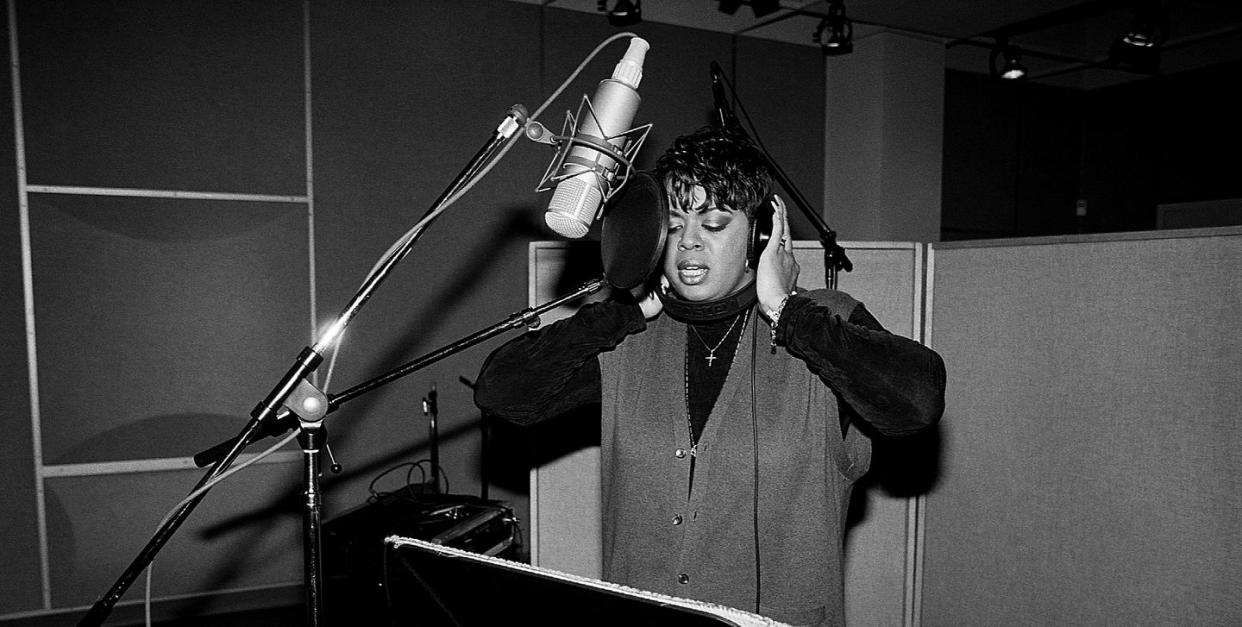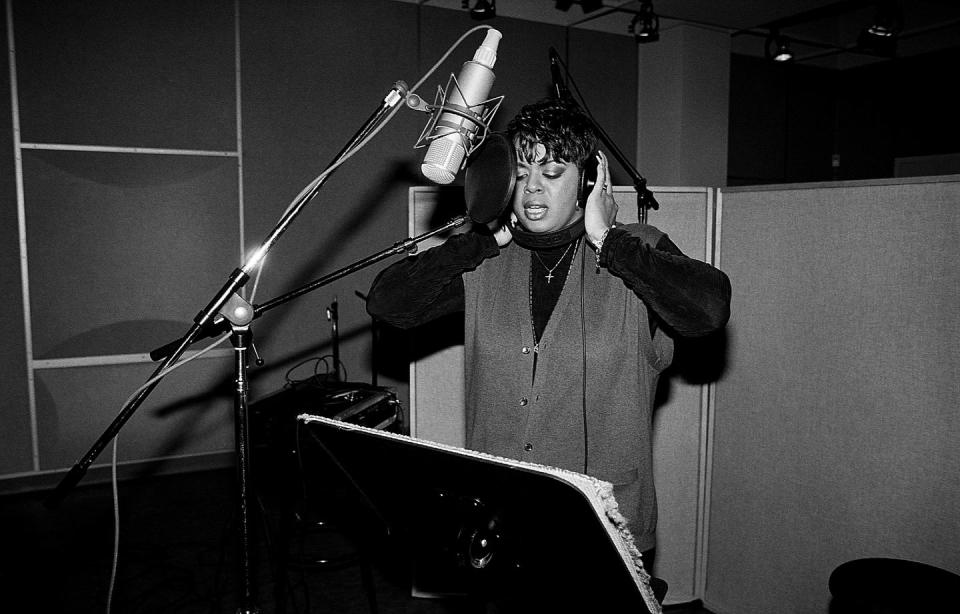Here’s the Scoop on Robin S., the Diva Who Inspired Beyoncé’s “Break My Soul”

- Oops!Something went wrong.Please try again later.
- Oops!Something went wrong.Please try again later.
"Hearst Magazines and Yahoo may earn commission or revenue on some items through the links below."

Numerous headlines as of late may convince you that Beyoncé single-handedly resurrected house music with the release of “Break My Soul,” the lead single off her forthcoming Renaissance album, which drops on July 29. But the genre’s roots can actually be traced all the way back to the early ’80s, thanks to the genius of its Black founding fathers Frankie Knuckles and Marshall Jefferson.
Renaissance, the title for Beyoncé's highly anticipated seventh solo studio album that came out today, is quite apropos, given the fact that renaissance is a French word meaning “rebirth.” Dance music is experiencing a resurgence, and it appears that Beyoncé certainly did her research, since “Break My Soul” samples one of the most definitive house tracks of all time: Robin S.’s “Show Me Love.” But as it turns out, the unforgettable version of “Show Me Love” that dominated radio airwaves nearly 30 years ago almost never came to exist.

Known to her postmaster as Robin Stone, the Queens native started singing in her church choir at 5 years old. Stone’s talent was hard to ignore, and she had a vocal coach by the time she was 8. Stone wasn’t the only singer in the family; her father sang in a quartet for the World’s Fair in the U.S. As a teenager, she began performing throughout Manhattan, citing Nancy Wilson, Anita Baker, Nina Simone, Phyllis Hyman, Patti LaBelle, Lena Horne, Annie Lennox, and Bonnie Raitt as early influences. “I was in a couple of cover bands,” Stone recalled in a 2018 interview with Classic Pop magazine. “New York Soul Syndicate and Top Shelf. We sang all of the top 20 R&B songs.”
Office administrator by day, enchanting songstress at night, Stone was performing at one of her regular gigs when producers Allan George and Fred McFarlane approached her to demo a song. “I did [so],” she said. “Thinking nothing of it.”
Under the name Robin Stone, the original version of “Show Me Love” (the “Montego Mix”), released in 1990, was distributed through Champion Records. But in Stone’s own words, the record “flopped.”
Returning to life as usual, Stone continued working her day job while “Show Me Love” faded to memory. It wasn’t until Swedish DJ Stonebridge, born Sten Hallström, got a hold of the “flopped” demo that everything changed for the singer.
Hallström had been releasing remixes under his aptly titled label Remixed Recording for years when he linked up with Champion Records. Telling him about the failed project that had a great vocal, the company asked the Swede to add his remix touch to “Show Me Love.”
The Swedish DJ created three different remixed versions of the track, and all three versions were rejected by the company. Licking his wounds, Hallström went back to the drawing board, and this time, he stripped the track down to just the kick drum and vocal and changed the bass to mimic an organ sound. After adding snare drums, filtered kicks, and a few synth-y chords, Stonebridge’s edit was done in just a little over four hours. Though he liked this new version, he was apprehensive about sending it to Champion Records for fear they'd reject yet another remix, but his then-girlfriend encouraged him to submit the edit.
When Stone heard Stonebridge’s version, she felt like the song had been reborn. “His remix and my vocal…it was a perfect marriage,” Stone said of the remix in the same interview with Classic Pop magazine. The secret sauce? Instead of wailing saxophones, robot vocal fx, and down-tempo snares, the Stonebridge remix instantly draws in listeners with distorted bass lines and crash symbols that build into the song's main organ melody. As if that weren't enough of an attention-grabber, Stone's vocal pierces through the chords, creating one of the most recognizable intros in dance music history.
Rereleasing in 1993 on Big Beat Records, Stone dropped her full name, and Robin S. was born. At its peak, Stonebridge's revitalized version of “Show Me Love” peaked at number one on Billboard’s Dance Club Songs chart and even reached number five on the Billboard Hot 100.
Stone’s debut album, Show Me Love, was also a global chart climber, climbing U.S., Canadian, UK, Dutch, and German charts upon its release, which solidified Stone as one of the most iconic voices in dance music. She maintains a low profile these days, but the success of 1993’s “Show Me Love” made her a household name, earning her a performance at the legendary Apollo Theater, and she commanded the stage during a house music tribute performance at the 2019 Black Girls Rock awards. Not to mention, she's still touring the world.
To think, if it weren’t for a persistent producer, the talents of a little-known DJ, and an encouraging girlfriend, “Show Me Love,” as we know it, would have never seen the light of day. Moreover, Beyoncé's “Break My Soul” may not have found its way to the dance floors. Shortly after the surprise release of “Break My Soul,” Stone thanked Beyoncé for breathing new life into the classic track, saying she’d be thrilled to collaborate with the 28-time Grammy-winning artist in the near future. “Thank you so much for giving me my flowers while I’m still alive,” she said during a recent appearance on Good Morning Britain. “I’m honored and excited to see what else can happen.”
You Might Also Like

